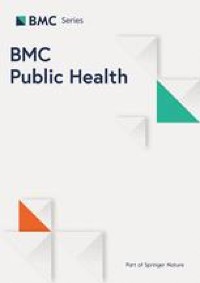Background Marijuana is legal in many Western countries and Thailand. In Taiwan, Marijuana remains a category-2 narcotic; however, some legislative candidates recently advocated legalization of medical marijuana. This study surveyed a large sample of Taiwanese to gain a better understanding of the public’s knowledge and attitudes towards legalizing marijuana. Methods This cross-sectional mixed-methods study included demographic data and responses to a survey questionnaire, “Knowledge and Attitudes of Legalizing Marijuana” (KALM). The survey included 15 statements about four categories: public health, social impact, medical applications of THC (Δ9-tetrahydrocannabinol), and legal and tax consequences; and two yes/no questions about medical use and legalization of marijuana. Knowledge was scored as disagree = 0, no knowledge = 2, or agree = 4; attitude was scored from 0 = very unimportant to 4 = very important. Responses to an open-ended question asking for additional comments/concerns were analysed with content analysis. The survey was conducted from February 15 to March 1, 2023. Results Data were analysed from 38,502 respondents, aged 15 to > 56 years. Most were female (67.1%) and parents (76.4%). Scores were higher for respondents who were parents, religious, ≥ 36 years of age, had a high-income status, no history of substance abuse, knowledge of medical marijuana, and did not support legalization of marijuana. Medical personnel had greater knowledge of marijuana, but their attitude indicated they viewed legalization as less important. In the open-ended question, many respondents requested more information about marijuana be provided to the public before considering legalization. Conclusions Taiwanese respondents considered legalization of marijuana a significant concern, especially as it relates to impacts on public health. Read More

Background Marijuana is legal in many Western countries and Thailand. In Taiwan, Marijuana remains a category-2 narcotic; however, some legislative candidates recently advocated legalization of medical marijuana. This study surveyed a large sample of Taiwanese to gain a better understanding of the public’s knowledge and attitudes towards legalizing marijuana. Methods This cross-sectional mixed-methods study included demographic data and responses to a survey questionnaire, “Knowledge and Attitudes of Legalizing Marijuana” (KALM). The survey included 15 statements about four categories: public health, social impact, medical applications of THC (Δ9-tetrahydrocannabinol), and legal and tax consequences; and two yes/no questions about medical use and legalization of marijuana. Knowledge was scored as disagree = 0, no knowledge = 2, or agree = 4; attitude was scored from 0 = very unimportant to 4 = very important. Responses to an open-ended question asking for additional comments/concerns were analysed with content analysis. The survey was conducted from February 15 to March 1, 2023. Results Data were analysed from 38,502 respondents, aged 15 to > 56 years. Most were female (67.1%) and parents (76.4%). Scores were higher for respondents who were parents, religious, ≥ 36 years of age, had a high-income status, no history of substance abuse, knowledge of medical marijuana, and did not support legalization of marijuana. Medical personnel had greater knowledge of marijuana, but their attitude indicated they viewed legalization as less important. In the open-ended question, many respondents requested more information about marijuana be provided to the public before considering legalization. Conclusions Taiwanese respondents considered legalization of marijuana a significant concern, especially as it relates to impacts on public health.

